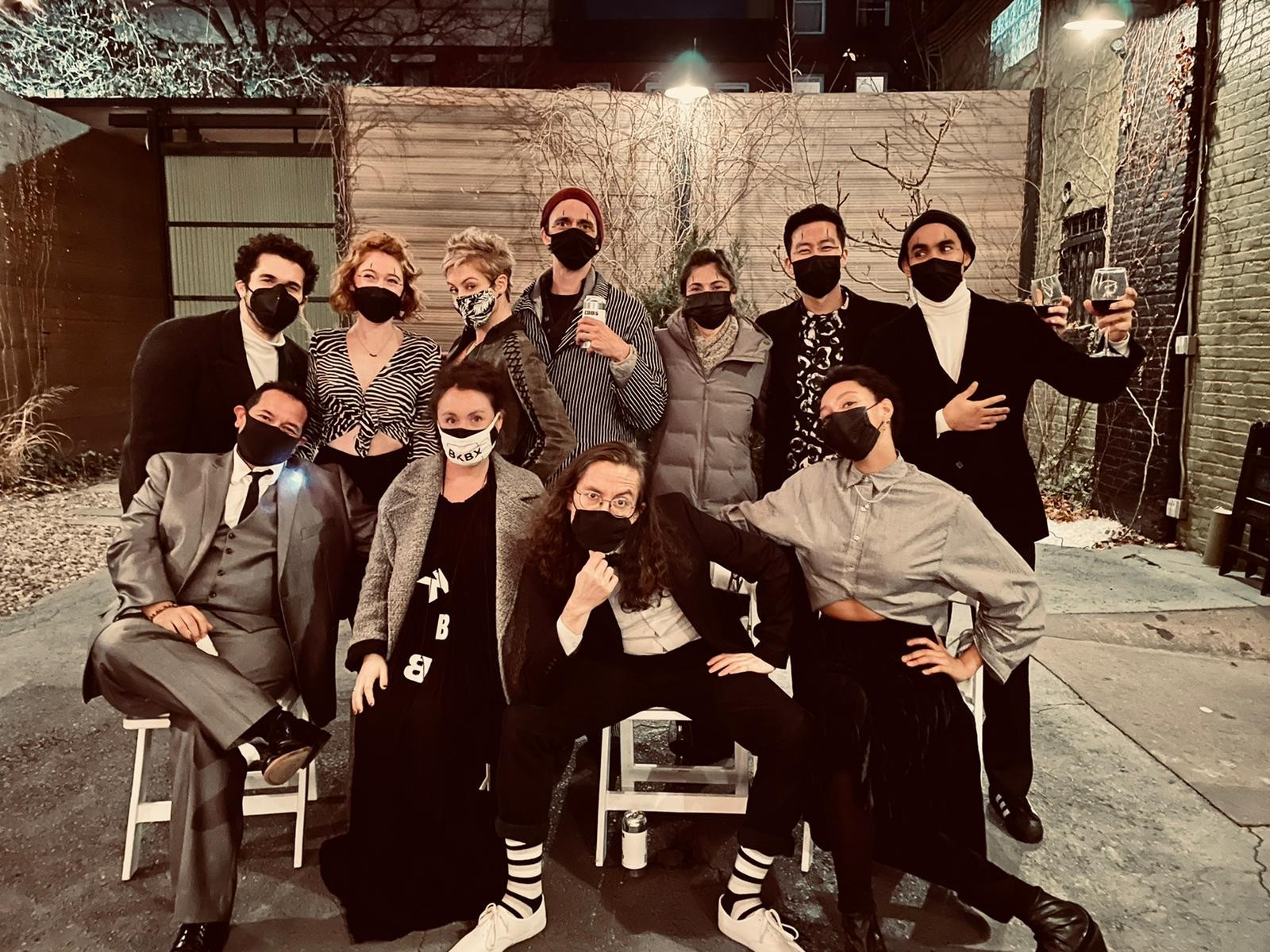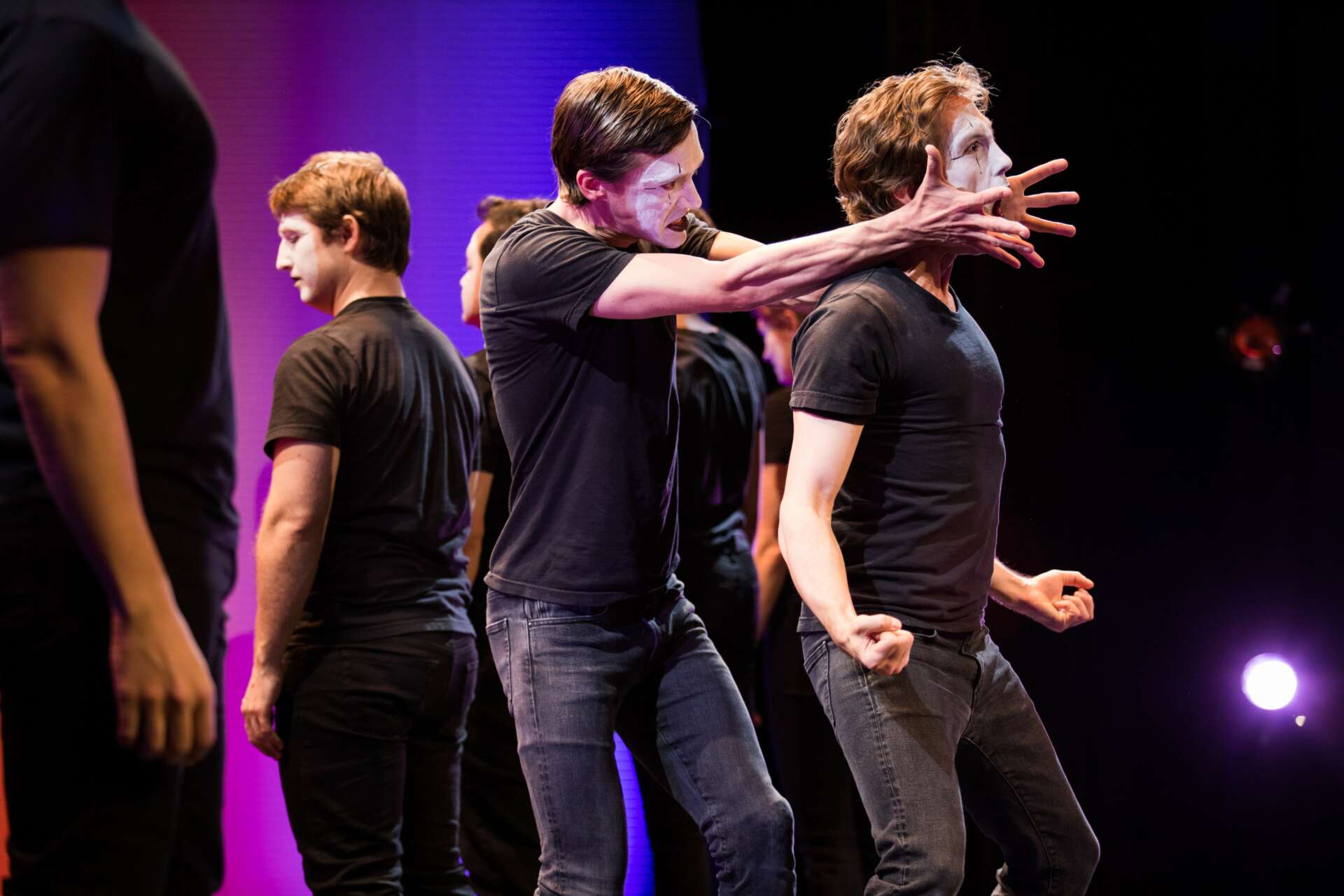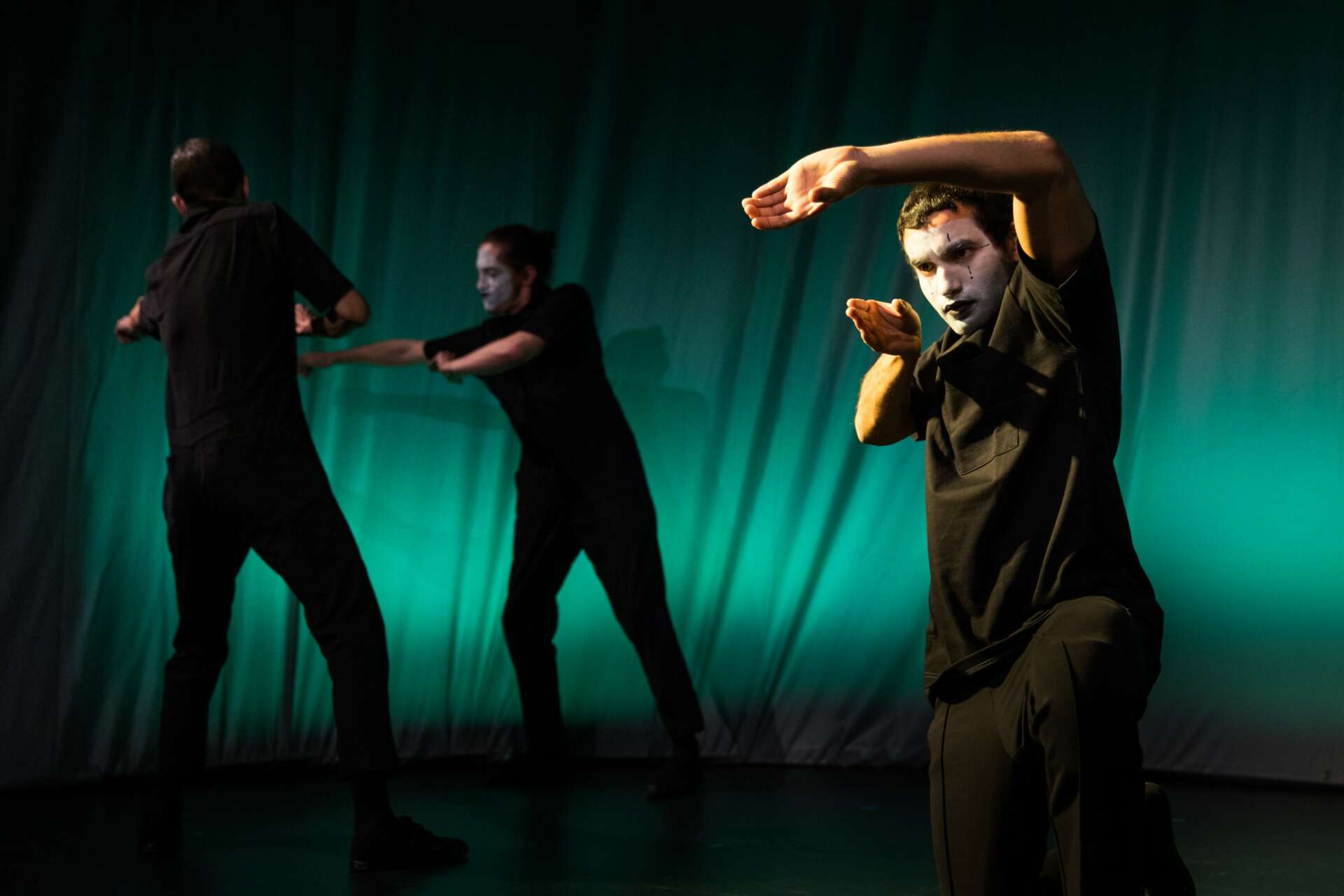We recently connected with Becky Baumwoll and have shared our conversation below.
Becky, looking forward to hearing all of your stories today. We’d love to start by getting your thoughts on what you are seeing as some the biggest trends emerging in your industry.
The theater industry has overgone tremendous change in the last few years. Like in so many other parts of our lives, the pandemic was a *great revealer,* forcing the public to face that which was broken in the system. The #MeToo and Black Lives Matter movements revealed aspects of the Theater that were broken, but then — as the Theater is prone to do — our community took action. (Theater has been leading societal change for centuries.) What has resulted is swift and meaningful shifts in our leadership, our practices, and our discourse country-wide. Smaller companies, like ours, have had the special ability to shape-shift in response to the current moment. Many of us have expertise in values-led, efficient, and innovative practices that larger organizations have (or could!) learn from. Of course, some of these industry-wide changes have been hard to catch up with, and have made a volatile funding landscame even more uncertain as new norms take shape. What matters most, though, is that there are many leaders in our field who have done incredible work in the last five years, moving in the direction of anti-oppression and thinking outside of the box.
Meanwhile, the country is still navigating its relationship with live theatrical performance. When Netflix allows you to flip the channel after a few seconds if you’re not into the latest show, it’s a bold ask to request someone to arrive *in person,* *pay a ticket price,* and *stay in their seats* for an hour or two. There’s a feeling of, “will this be worth it?” I’ve found that it’s difficult to build a meaningful audience-artist relationship when the algorithm for value becomes transactional and impatient. It’s not AT ALL the audience’s fault, it’s simply how we operate these days. Part of our work in the theater industry is to not only build shows that have artistic value, but also to build/reshape our relationship to the public as theatermakers. Especially since the pandemic, live, collective, in-person experiences are exactly what the doctor ordered.


Becky, love having you share your insights with us. Before we ask you more questions, maybe you can take a moment to introduce yourself to our readers who might have missed our earlier conversations?
My name is Becky Baumwoll, founding Artistic Director of arts nonprofit Broken Box Mime Theater (BKBX). I founded BKBX in 2011 with the collaboration of several artists that I knew from undergrad. Since then we’ve shifted from a small, fiscally-sponsored ensemble to a organization that conducts over 40 programs per year.
BKBX performs original, contemporary short plays entirely through movement. The 20 diverse artists who call BKBX their artistic home believe in making innovative, provocative theater that erases the spoken language barrier and champions the power of simplicity in performance. Our short plays range from realistic to metaphorical, heart-wrenching to hilarious, and cinematic to intimate; our 180-piece repertoire offers us the ability to tailor a setlist to the space, audience, accessibility, or thematic needs of any partner or presenter.
In addition to producing shows in NYC and on tour, BKBX conducts workshops and school residencies through BKBXEd, our education wing. We teach physical storytelling, embodied social-emotional learning, modern mime techniques, body language, and ensemble collaborative practice.
Mime is often thought of as corny or old-fashioned. We love transforming expectations, bringing this medium into the modern world and exploring the ultra-engaged audience experience that nonverbal performance elicits.

Can you open up about a time when you had a really close call with the business?
In 2020, we had booked several touring partners, including our first international tour in China. It was a long time coming, and the result of much work, networking, and investments in conferences and relationship development. Thanks to these tours, we would, for the first time, move me from part-time to full-time pay.
When these were cancelled, we were at a standstill. The performing arts were unable to operate whatsoever while the pandemic was underway and its peak, and long after.
In a moment of brilliance, our Finance Director thought to contact our General Liability Insurers and sort through all of the cancelled contracts, even those that were not fully signed. We were able to receive enough from our Insurers to cover my full-time pay, which then allowed us to pivot our programs toward new shapes and formats.
One of these formats was a new, nonverbal YouTube channel for kids. We had been hearing from parents and teachers how difficult the pandemic was for little ones, and how in need of socialization they were. This channel was a natural extension of our skillset, engaging kids in physical follow-alongs and storytelling that our company members recorded separately and edited together from home. This led to more interest in our educational programming, and eventually a direct partnership with the city’s Department of Education. In the end, we went from 1 or 2 school residencies annually to now 15-20 every year, adding significantly to our programming, income, artist pay, and artistic impact.

Do you have any insights you can share related to maintaining high team morale?
It is incredibly helpful for me to know the “professional love languages” of my co-workers. I ask them outright at annual meetings: what makes you feel valued, appreciated, and seen? For some, it’s a response to an email, to others it’s an annual gift, and some like verbal affirmations/crediting in meetings. Of course these are all great to include consistently, but it’s nice to think about each person’s unique set of needs.
We also have found a lot of success in creating our own job titles. Titling gives us agency in our work. Every year we return to our titles and change them as needed, defining for ourselves who and what we are to the organization.

Contact Info:
- Website: www.brokenboxmime.com
- Instagram: @brokenboxmime
- Facebook: /brokenboxmime
- Linkedin: /brokenboxmime
Image Credits
Bjorn Bolinder


